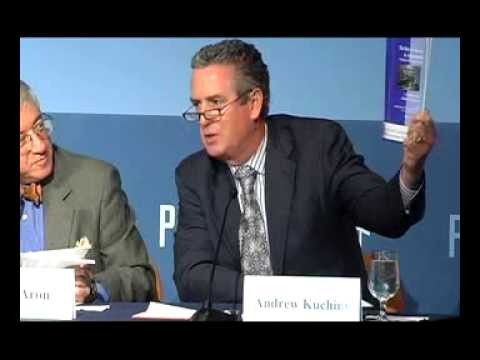Russia after the Global Economic Crisis
Post on: 16 Март, 2015 No Comment

Jun 10, 2010
These excellent essays by major Russian and Western scholars on Russias key political and economic developments are vital for anybody who wants to understand Russias current dilemma.
- Carl Bildt, Minister for Foreign Affairs of Sweden
Russia has sustained more economic damage during the global economic crisis than any other G-20 country, with GDP shrinking by 8 percent in 2009 and the stock index falling more than 80% from its peak. Beyond the significant economic damage, the crisis revealed fundamental problems with the economic structure itself, which if left unresolved, will hinder sustainable growth in the future. Low energy efficiency and labor productivity, corruption, the burden of social spending on the budget and the burgeoning inefficient bureaucracy are some of these difficulties. These problems are in turn compounded by low investment and an aging demographic, threatening the long-term stability of the Russian economy.
With Russia After the Global Economic Crisis, edited by Anders Еslund, Sergei Guriev, and Andrew C. Kuchins, major steps are taken in the direction of understanding how serious the global crisis has been for Russia. This volume is the second book in the Russia Balance Sheet Project, a three-year collaborative effort between the CSIS and the Peterson Institute for International Economics to investigate the factors influencing Russias future. Both Russian and American authors apply a high degree of expertise to twelve major issues of importance for Russias social and economic development: the current economic dilemma, impact of the economy on Russian politics, functioning of federalism, corruption and rule of law, role of high technology, climate change and energy efficiency, Gazprom, military reform, foreign policy, foreign economic policy, the post-Soviet space, and US-Russia relations.
These factors are crucial to understanding Russias political system and foreign policy; a firm grounding in Russias current economic realities, goals, and the global economic system within which Russia operates is a requisite for any analysis of Russias future. Moving forward, the authors reach a consensus that the effort to reform must be a top priority in order to maintain stability in the long-term and ensure that Russia can continue to play a key role in the global economy. Russias strategy to 2020 emphasizes the role of international partners, and in the context of the US-Russia reset the timing is right for a collaborative effort. Russia After the Global Economic Crisis provides a comprehensive analysis of Russias current condition and creates a strategic framework for Russias future development.
Russia After the Global Economic Crisis, a brilliant sequel to the highly acclaimed The Russia Balance Sheet, first cogently assesses Russias current structural and policy shortcomings brought into sharp focus by the economic crisis and then astutely sets forth tough choices Russia must make to avoid future stagnation and alienation.
- Carla A. Hills, chair and CEO, Hills & Company














